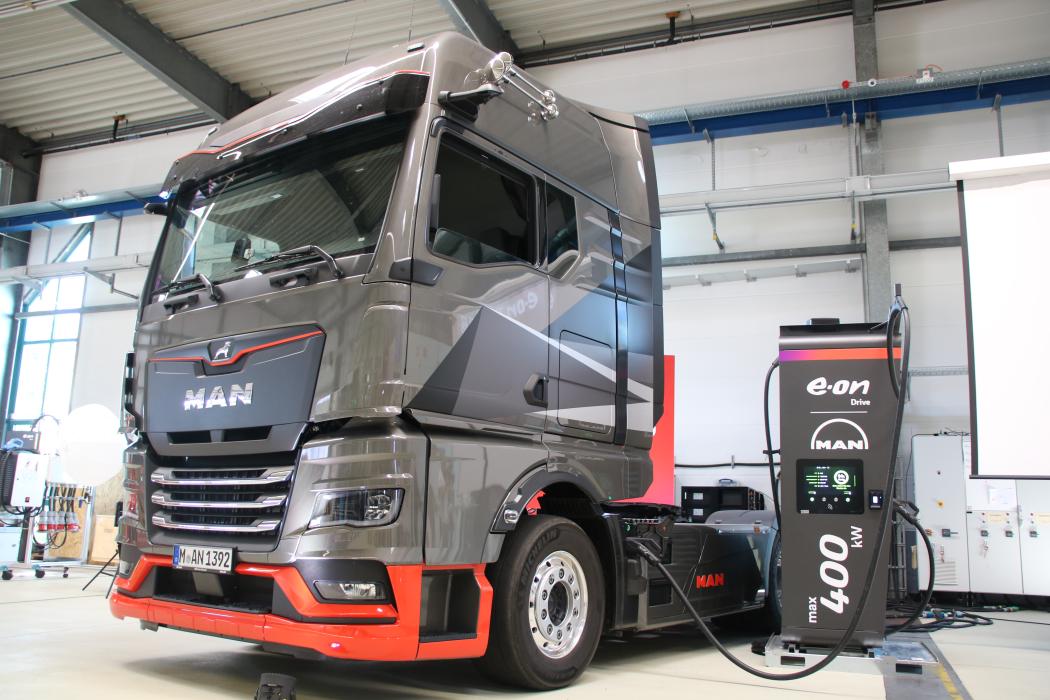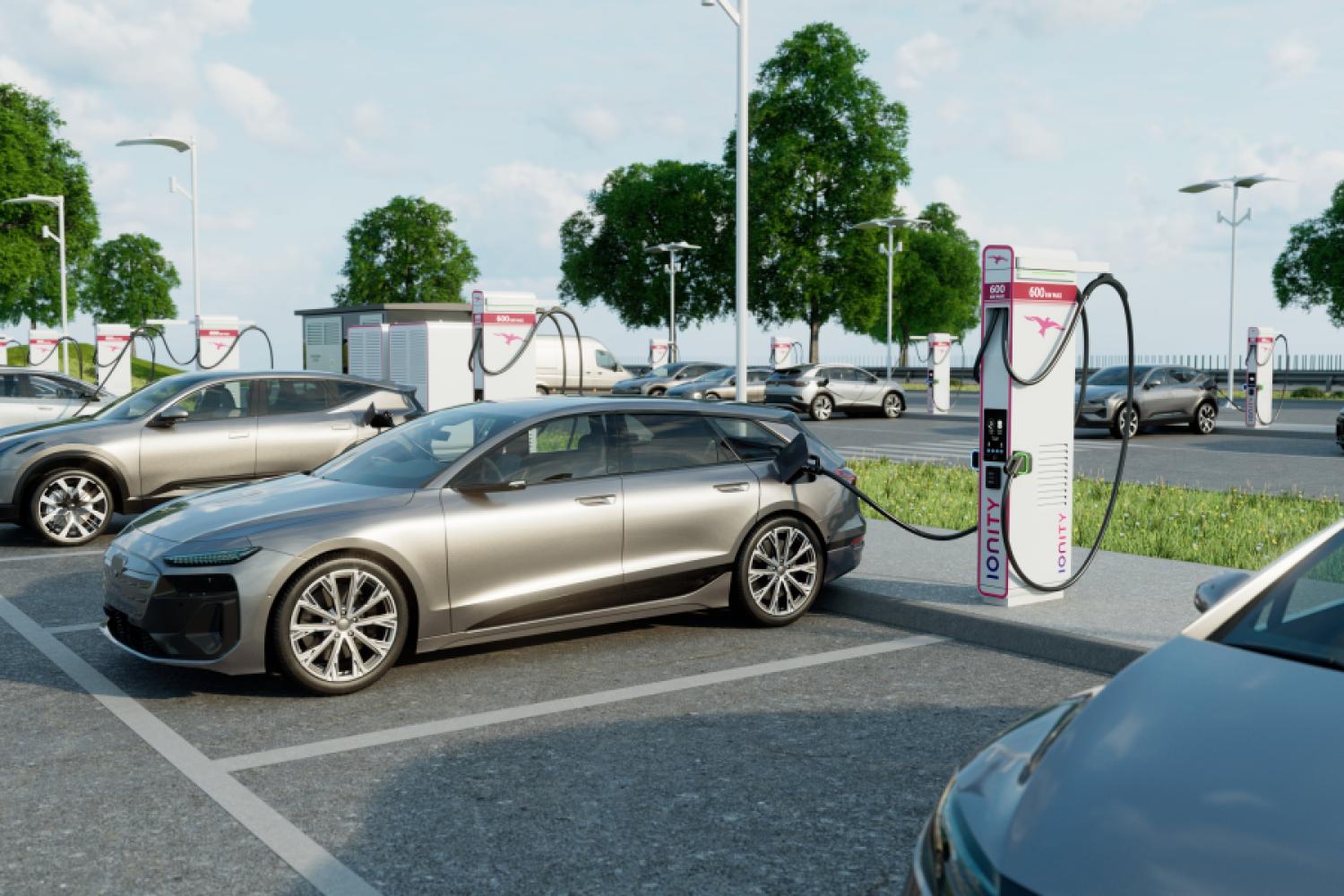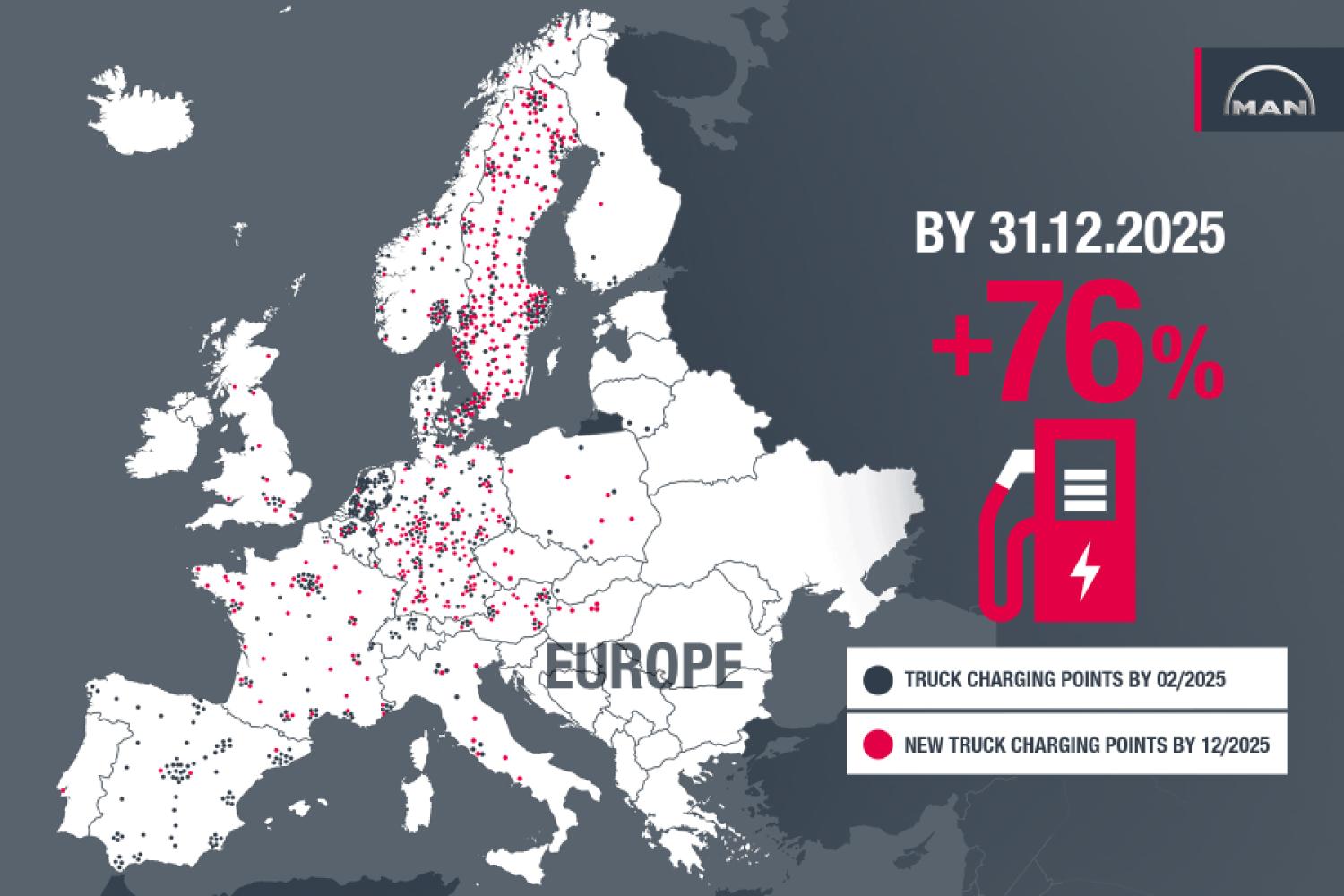With the Drive-E Global project, the EU aims to advance electromobility in Europe and accelerate the expansion of charging infrastructure with funding of 45 million euros. A consortium led by the Essen-based energy company E.ON will receive the funds to install charging points for electric cars and electric trucks along the major traffic routes of Europe. It is one of 39 projects recently selected by the European Union "to improve the infrastructure for alternative fuels," according to the E.ON press release.
As part of the project, a total of 1,400 new public charging points are to be created by the end of 2027. Of these, 430 alone are planned for heavy-duty vehicles with a capacity of 350 kW or more. According to reports, Drive-E will be implemented in 13 of the total 27 EU countries, thus contributing to the electrification of European freight and passenger transport.
Charging points along important routes
Behind Drive-E are project partners E.ON and its subsidiary ZSE, which claims to be the largest electricity supplier in Slovakia. Eldrive is the third in the alliance, a company with locations in Lithuania, Bulgaria, and Romania, which mainly supports the accelerated transition "to electric vehicles and the decarbonization of transport in Southeastern Europe and the Baltic states" with fast and ultra-fast charging stations, as stated. Eldrive itself claims to have already installed more than 2,000 charging points in the three focus countries.
Together, they now aim to build a network of charging points for cars and commercial vehicles along important trans-European freight routes. This includes locations specifically designed for truck charging as well as mixed environments for trucks and cars. Moreover, the entire remaining network is to be upgraded: existing charging points for light commercial vehicles are also being considered, with the aim of closing supply gaps.
According to reports, the planned charging points are distributed across more than 250 locations in the mentioned 13 countries: Germany, Austria, Denmark, Italy, the Netherlands, Sweden, Lithuania, Czech Republic, Hungary, Poland, Romania, Bulgaria, and Slovakia.
Decarbonizing Freight Transport
The project is co-financed by the European Union as part of the "Alternative Fuels Infrastructure Facility (AFIF) II," as reported by E.ON. The second phase of AFIF (2024-2025) was launched at the end of February 2024 with a total budget of one billion euros to establish infrastructure for obtaining "alternative fuels" along the Trans-European Network of Transport (TEN-T) and thus make "freight and passenger transport in Europe more efficient and sustainable." Alternative fuels refer to electricity and hydrogen. As a next step, the EU will also aim to supply hydrogen charging stations in the future, as noted on the European Commission's website for the project.
Various Parallel Actions
Other mobility companies are also working on expanding the public charging network for electrified heavy-duty trucks. For instance, MAN Truck & Bus is cooperating with the E.ON energy group, as recently reported. By the end of 2025, the truck manufacturer aims to display around 1,000 charging points in Europe on its MAN Truck Charging Card, ensuring fleet operators are always informed about available charging stations for their e-trucks.
About E.ON Drive Infrastructure
E.ON, according to its own statements, wants to make "electromobility an integral part of a flexible and affordable energy system." Through its subsidiary E.ON Drive Infrastructure, the energy group builds, owns, and operates public charging networks "for all types of electric vehicles" and aims to make charging electric vehicles possible for everyone, everywhere. Currently, E.ON Drive Infrastructure operates more than 6,000 public charging points in eleven European countries.
About ZSE
Západoslovenská energetika, a.s. (ZSE) is reported to be the largest electricity provider in Slovakia and a leading electricity and gas trader. The ZSE Group has been around for about 100 years and has been 49 percent owned by the Essen-based energy company E.ON since 2002. The Slovak company operates a nationwide network of AC, DC, and fast charging stations and aims to prepare for the future of freight transport by investing in infrastructure for electric heavy-duty vehicles.
About Eldrive
Eldrive operates more than 2,000 public charging stations in Lithuania, Romania, and Bulgaria, focusing on fast and ultra-fast charging. According to a press report, Eldrive started developing its own large charging parks along the main highways at the end of 2024.






